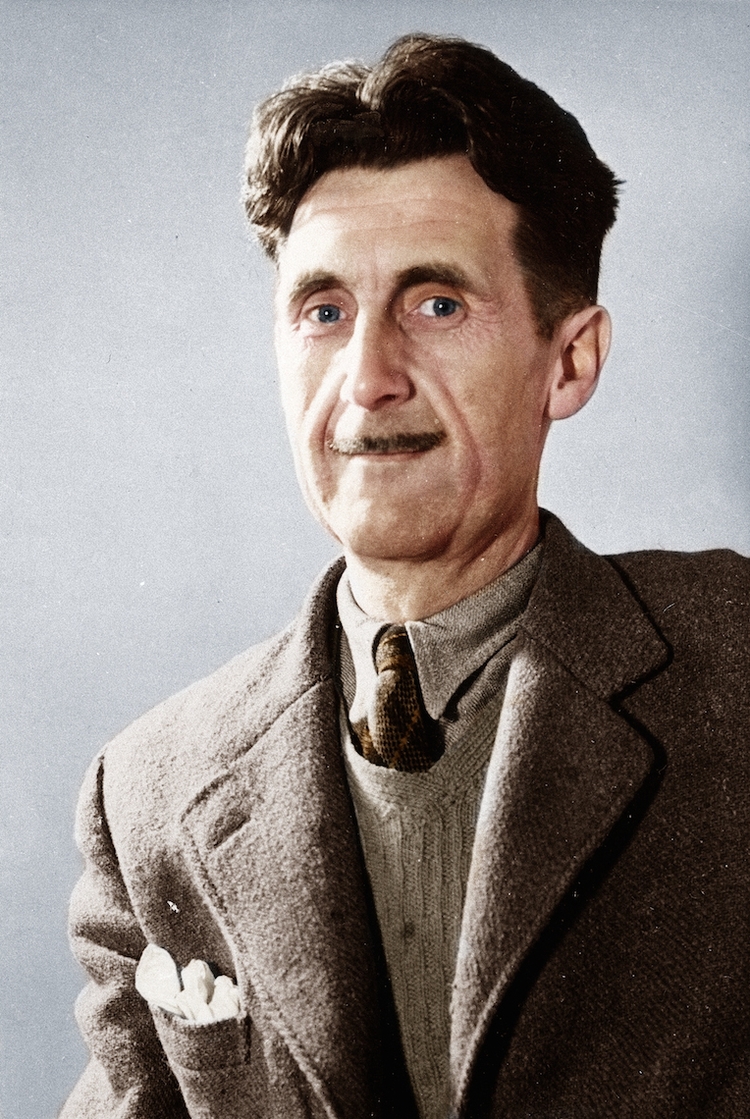
In the first part of this two-part series, I treated some of the logical fallacies and internal contradictions in George Orwell’s essay “Notes on Nationalism.” I will continue this second part by focusing on some of the problems with the narrative argument Orwell presents in the latter half of his essay.
Orwell criticizes G.K. Chesterton’s religious engagement in politics. Yet Orwell’s own religious presuppositions are revealed when he lists what he calls the “overthrown idols” of British nationalism: God, the king, the Empire, and the Union Jack. He goes as far as to say that they (i.e. including God) are only “worshipped because they are not recognized for what they are.”
Orwell’s accusation that nationalists are removed from reality, and that they believe it can be altered to suit their own agenda, is especially ludicrous when one looks at the unsubstantiated claims Orwell himself makes in this very essay. To claim, as he does, that races or religions don’t exist is rather absurd.
Orwell identifies ten forms of nationalism that he categorizes into three groups: positive nationalism, transferred nationalism, and negative nationalism.
Under positive nationalism he lists British imperialism (“neo-toryism”), which is obviously antithetical to ethnonationalism, Celtic nationalism, and Zionism. The irony of this listing is the ethnocentric paradigm inherent to it. Orwell (perhaps subconsciously) realizes that he is writing for an Anglo-Saxon audience and therefore says nothing other “positive” nationalisms apart from the British and Irish, while this form would obviously be universally applicable. He thereby unconsciously exemplifies the impracticality of his own internationalism and globalism. Orwell should, however, be credited for his rejection of Zionism. Although he even admits that it exhibits “unusual characteristics of a national movement”, he fails to see that this is because it is not a form of nationalism or tribalism at all, but imperialism.
Under transferred nationalism. he lists political Catholicism (already discussed), color feeling, class feeling and pacifism. Orwell understands color feeling to be the belief held by white people that the colored races are superior. Ironically, Orwell himself had denied the existence of race at the start of his essay, yet now applies it as a legitimate category.He rightly identifies this feeling with masochism, obviously implying that this is a form of oikophobia – which again, like communism, is antithetical to nationalism. The intellectual gymnastics Orwell employs to identify both as nationalism is mind-boggling. Under class feeling, Orwell understands the belief in the superiority of the proletariat. While nationalists can also have this “class feeling”, it remains unclear how Orwell manages to identify the two as the same thing. Pacifistic nationalism is identified as a veil for the love of totalitaranism, with the implication of quenching all resistance against tyranny. But nationalists have historically been proven to be the natural enemies of tyranny.
Under negative nationalism, Orwell lists Anglophobia, anti-Semitism, and Trotskyism. Especially because he identifies Anglophobia as a sentiment held primarily by British intelligentsia, this is again a form of oikophobia Orwell wrongly identifies as nationalism. Orwell considers anti-Semitism a dead ideology because of the defeat of the Nazis. Trotskyism is quite literally the greatest enemy of nationalism in history. Unsurprisingly, Orwell fails to make any substantial argument as to why he lists it here.
He argues that those evils he has accused the nationalists of doing and believing, while not applicable to all nationalists, are “fairly common”. Here he again shows his lack of consistency, for he does exactly what he condemned nationalists of doing: stereotyping a group of people.
In concluding his essay, Orwell again speaks of nationalism’s so-called distortion of reality, which he claims to be based on “fear, hatred, jealousy and power worship”. He includes power-worship because he is unable to distinguish between Marxism and its antithesis, nationalism, his essay’s single most outstanding weakness. Jealousy is the root sin behind egalitarianism, so it certainly cannot be associated with nationalism, which has as its basic principle the love for one’s own as opposed to envying what belongs to another. Furthermore, fear and hatred in themselves cannot be regarded as vices within a biblical moral framework.
This Orwellian essay is by far the most disappointing of everything in his corpus that I have read. The essay is so full of contradictions, unsubstantiated claims, and fallacies that it can certainly not be classified as good literature. Presupposing numerous erroneous theses, Orwell provides us with a very weak defense of his erroneous beliefs regarding race and nationhood. For all the good that he has written, it must be remembered that Orwell was ultimately an enemy of Christianity and nationalism, and therefore fundamentally sided with evil.
| Tweet |
|
|
|




